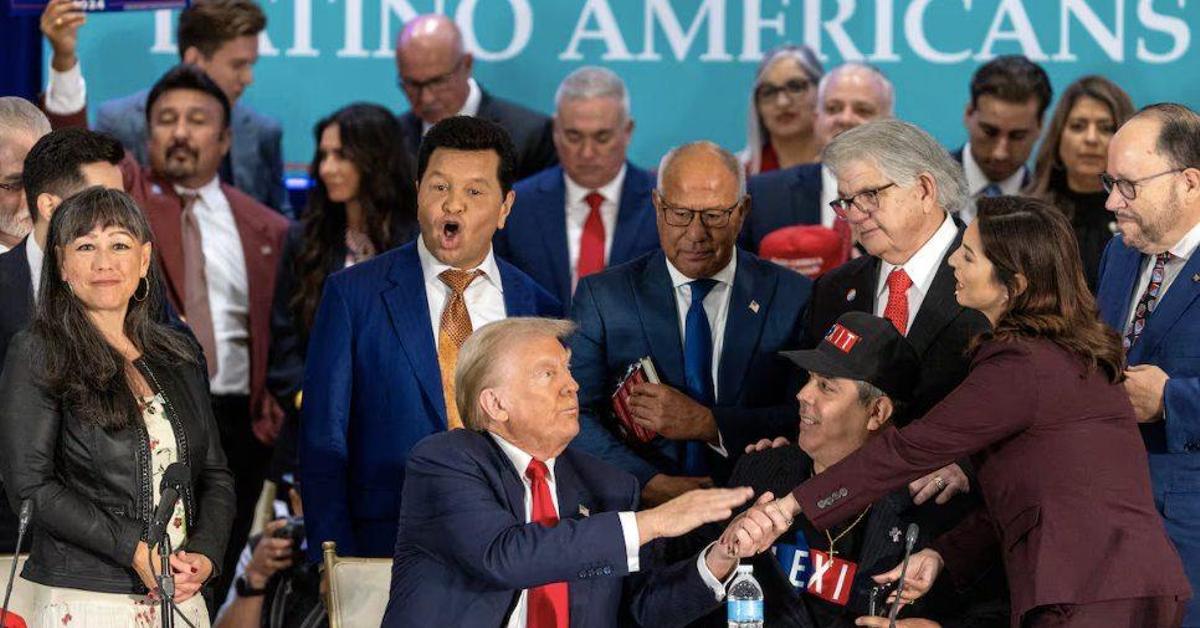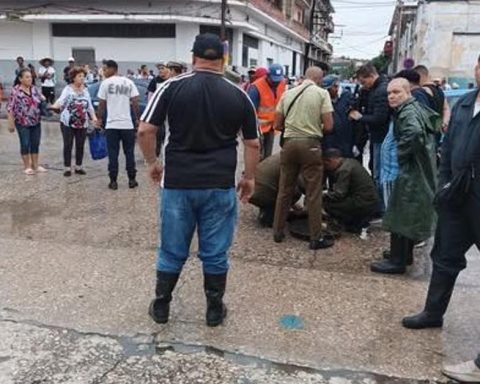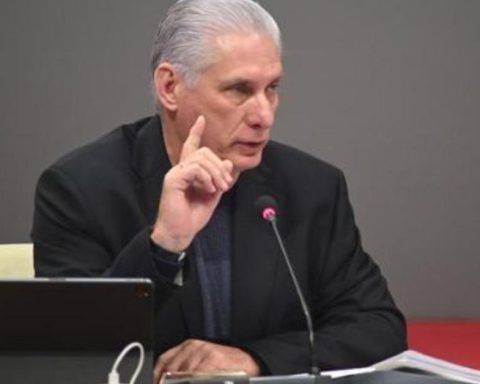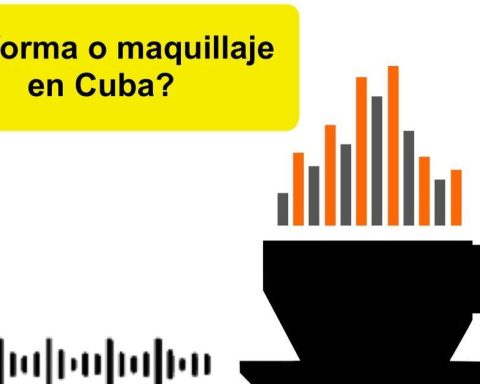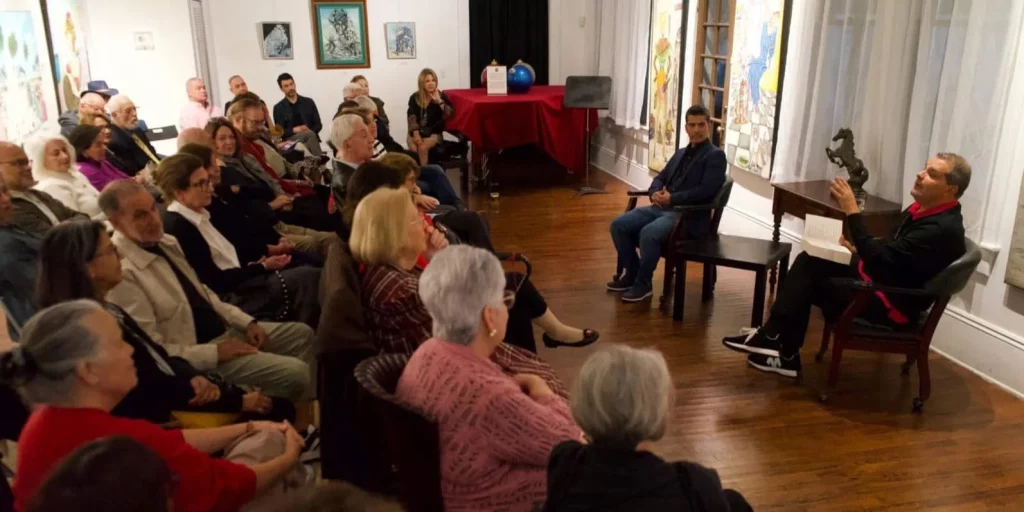Havana/While Cuban Television received this Wednesday in the program Round Table To a Foreign Ministry official, Johana Tablada, who highlighted her Government’s achievement in obtaining concessions from the United States, two senior officials from Donald Trump’s team pointed out that the joy could be short-lived in Havana.
The future Secretary of State, Marco Rubio, said he had “zero doubts” that Cuba promotes terrorism, and his colleague in charge of relations with Latin America, Mauricio Claver-Carone, suggested “even greater sanctions” and the option of reinstating the measures annulled by Joe Biden.
Claver-Carone foresees a more lasting effect for Trump’s counterattack and criticized the Democratic Administration’s announcement. “Whether it was Venezuela last year or now Cuba, the Biden administration seems to love bogus deals that favor anti-American authoritarian regimes,” he said. He assured, however, that “there is a process” that “will take time” to revoke the decision.
“When you know that the incoming administration has Marco Rubio, Mauricio Claver-Carone and Cuban-Americans from Florida, you don’t stir them up”
For his part, John S. Kavulich, president of the United States-Cuba Economic and Trade Council – which represents the private sector interested in doing business with Cuba, but who critically evaluates Washington’s position – said that the measure is “a case of Harvard textbook of political malpractice by Biden.”
“When you know that the incoming administration has Marco Rubio, Mauricio Claver-Carone and Cuban-Americans from Florida nominated for ambassadors to Spain, Argentina and Panama, you don’t stir them up. “You keep things quiet,” he added. The measure will see its end as soon as Rubio “gives President Trump a pen,” he predicted.
The diary The Wall Street Journal This Thursday he dedicated an editorial to the subject. “Biden betrays the people of Cuba,” it headlined without ambiguity. “The Cuban regime thanks you,” adds the newspaper, questioning Biden about the “tragic” reality of the country, immersed in the worst crisis in its history. “The regime did not take any steps towards democracy, and continues to confiscate hard currency sent to Cuban families from abroad,” he denounces. “The good news is that the Trump Administration will be able to reverse these measures quickly.”
At the Round Table, Tablada, deputy director of the General Directorate of the United States of the Cuban Foreign Ministry, said that for the regime the scope of the measure is “important” and has a “direct influence” on the economy.
Tablada explained that the country is going to take advantage of “access to international financial institutions and services” that were “denied” until now. “The inclusion of the Caribbean country on the list hindered its deposits, payments, transactions, credits and all movement of assets in any currency,” he said.
Tablada explained that the country will take advantage of “access to international financial institutions and services.”
He added that companies that “refuse to trade with Cuba because their lawyers and banks recommend not making transfers or commercial operations” with the regime will have the green light in the coming months to negotiate and overcome the “shocking” caused by the portfolio of opportunities. and business with Havana, he said.
Tablada also commented that the measure should benefit tourism, since with the inclusion of Cuba on the list – and the consequent elimination of the visa exemption for nationals of more than 40 countries who travel to the United States after a stay on the Island – “tourism in Europe collapsed” and Cubans living abroad also saw their trips to the United States limited. “That would change and is changing with Tuesday’s announcement,” he assured.
Like all officials of the regime, Tablada blames the “blockade” for the suffering of the Cuban people. However, data indicate that US exports have not stopped growing in recent years. In 2024, for example, they will exceed $400 million in agricultural products and food, and $50 million in vehicles. The United States-Cuba Economic and Trade Council published this Wednesday the figure, significantly higher than what was exported to the Island the previous year, with a value of 342 million.
The United States also promoted “authorized investments and financing in private companies” – SMEs – and granted “bank account permits,” according to the Council, which criticized the Cuban Government’s discourse on its financial ties with the United States. In the opinion of the entity, That Havana continues to use the word “prohibited” to define the status of its exchanges is a “misleading” strategy to describe the existence of commercial, economic and financial connectivity with the private sector in the United States.
This week it was also learned that the chicken imports from the US fell by around 10% in 2024 compared to 2023. Although data for December are not available, economist Pedro Monreal reported that the country purchased 232,570 tons between January and November, for a value of 285 million of dollars.
With full compliance with US laws, the regime can buy almost everything in the US, except weapons or elements to manufacture them.
With total adherence to the American lawsthe regime can buy almost everything in the United States, except weapons or elements to manufacture them, a measure that even precedes the Revolution, since it had already existed since 1958, during the Government of Fulgencio Batista.
The Council prepares a chronology of the concessions of the outgoing Joe Biden Administration to the Island, and shows that from 2022 – with the approval of the first investment in a Cuban SME – until this week, with the exclusion of Cuba from the list of countries that sponsor terrorism, the regime has taken ample advantage of the Democrat’s management.
The Council also reproduces the statement from the White House press secretary, Karine Jean-Pierre, in which she clarifies that Biden has intended, with the measure, “to allow remittances to flow more freely to the Cuban people and increase support for “independent Cuban businessmen.”
In addition, she said she had been informed by the Catholic Church that Havana had released a “substantial number of political prisoners.”
“We notified Congress that the president issued a waiver for Title III of the Helms-Burton Act, also known as the Freedom Act, for a period of six months,” Jean-Pierre explained. “Finally, President Biden rescinded National Security Presidential Memorandum 5 of 2017 on Cuba policy to eliminate the so-called ‘restricted list’ and, by extension, additional regulations on the interaction of US persons and entities with Cuban persons and entities , beyond what is currently prescribed by US law”
Official spokesperson Jorge Legañoa, also a guest on the Round Table program, admitted that Trump will not receive Biden’s “inheritance” willingly. The Republican had already included the regime on the list again after Barack Obama removed it, and the situation has been “a hot potato” for both parties.
However, Legañoa pointed out, including Cuba on the list again will take time. The statements of the most prominent members of the next Trump Administration indicate that triumphalism in Havana could last very little.
